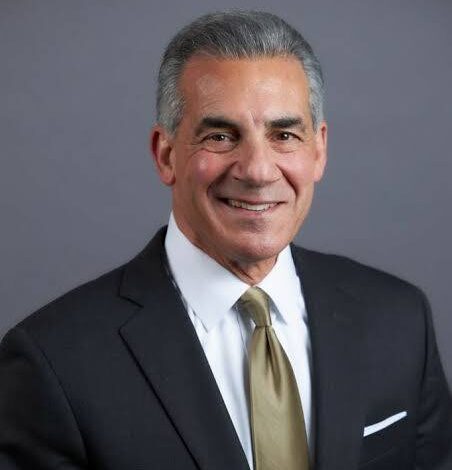Zohran Mamdani’s mayoral primary win in New York City offered lessons for New Jersey’s gubernatorial election. With only a few weeks until the vote, it’s clear that only one candidate has applied those lessons.
As of now, the election is GOP candidate Jack Ciattarelli’s to lose.
When we look back at this election, this month’s Naval Academy-gate and FOIA revelations about Democratic candidate Mikie Sherrill will be remembered as her own version of the Hillary Clinton computer server scandal. It is less about the substance and more about how it was handled.
Instead of being transparent and releasing materials that would accredit her service and academics, Sherrill focused on discrediting her opponent and labeling it a conspiracy to undermine her. These questions will remain unresolved until Election Day unless they are addressed directly.
There has been no credible intelligence or evidence suggesting that this was anything other than a clerical error, leading to the improper release of personally identifiable information following a legitimately filed FOIA request.
Until and if that evidence surfaces, it appears to be a serious process error by a clerk who handles hundreds, if not thousands, of records a month — not a conspiracy.
Conspiracy aside, that is opposition research in 2025, and there should have been a plan in place to address this long before it became public. The bigger problem has been her campaign’s response, which only amplified the issue by focusing on optics over transparency.
Separately, her campaign remains headline-driven with slogans like “Jack up taxes” or “protect democracy,” leaning on the Donald Trump card, with no meaningful or detailed policy proposals. On the core issues this cycle, such as energy, affordability and taxation, she has not articulated credible or implementable solutions.
This vacuum allows Ciattarelli to define the economic narrative unopposed, and she is losing the battle of ideas on the issues that matter to the electorate. It also underscores a wider weakness in Democratic messaging that this election will test whether the party can speak credibly about economic pressure without sounding detached from it.
By staying surface-level, she undermines her credibility and leadership image with proposals to declare a “State of Emergency on Utility Costs.” Citizens statewide are already feeling a state of emergency on costs. They need no further declaration of this; they are craving detailed, specific, workable solutions.
Local and emerging Democratic voices are signaling alignment with Ciattarelli or neutrality. This is a big red flag as it shows her message isn’t resonating beyond the establishment or older Democratic guard.
She’s not getting the diverse base that she needs, and she isn’t picking up labor or police support when safety is top of mind. In a cycle defined by cross-party appeal and voter realignment, this poses a danger to her and her supporters.
Ciattarelli’s branding feels deeply pro-New Jersey with blends of local culture, small business, regional identity, north and south unity, pork roll, diner politics, and everyday citizen connection. Sherrill, by contrast, is leaning too heavily on the institutional Navy veteran persona with its polish and discipline, albeit a significant distance. It fails to connect emotionally or culturally with the voter who seeks Garden State authenticity.
It is worth noting that her path is more challenging in some ways. She is trying to distance herself from Gov. Phil Murphy’s unpopular policy record (including his time overseas during state emergencies) while re-energizing a weary and fractured Democratic donor base.
That is a tricky balance, arguably a steeper challenge than what Ciattarelli is facing while distancing himself from Trump’s unpopularity. Even so, the problem is not the difficulty of the task; it is how she is handling it.
Her campaign execution has not matched the complexity the moment necessitates. Even during this month’s accusations of nepotism that her children’s recommenders gave for their academy admission, she chooses not to release the communications between her and her children’s congressional supporters.
There are still a few weeks for Sherrill to become the change agent voters seek. Electoral polling has historically undervalued the Republican candidate’s voter bases, and while the polling narrative suggests a tight race, New Jersey is probably on the cusp of turning red.
Independent voters are leaning toward Jack, and mishandled scandals, accusations of nepotism, weak policy depth, cultural disconnect, and a lack of economic clarity during a time when households are focused on the cost of living, indicate that a surprise is possible.


